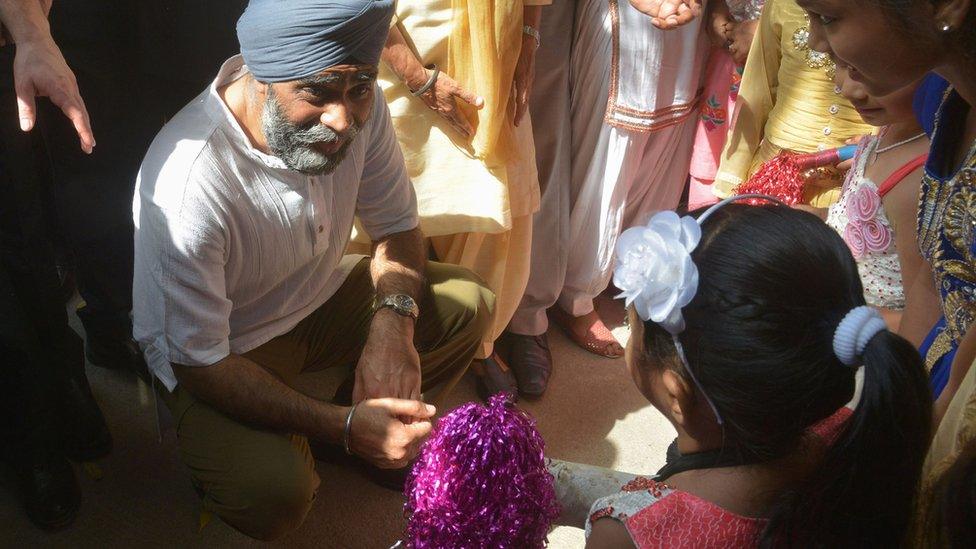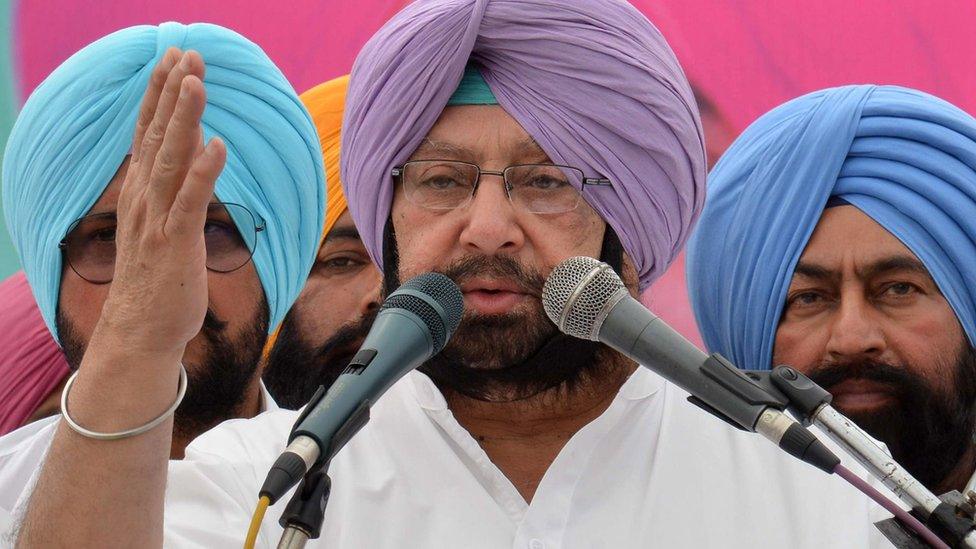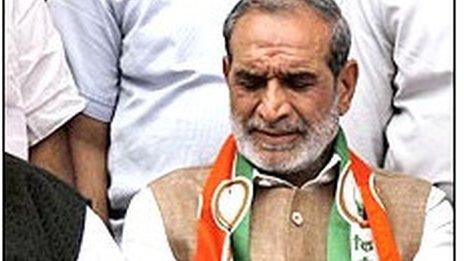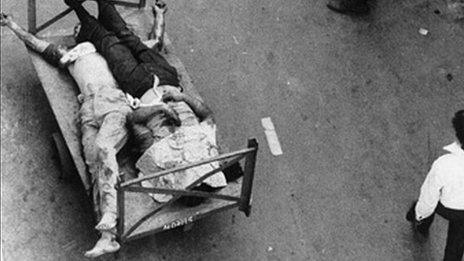India visit 'very productive' despite controversy, says Sajjan
- Published

Canadian Defence Minister Harjit Sajjan's visit to India made some waves
Canada's Defence Minister Harjit Sajjan says his official visit to India has been "very productive" despite political tensions.
Mr Sajjan says he has been able to bolster ties between India and Canada.
Punjab's top elected official had accused him of sympathising with a Sikh independence movement, which he denies.
Mr Sajjan also distanced himself from a recent motion passed by a Canadian provincial legislature describing 1984 anti-Sikh riots as "genocide".
The Canadian minister's six-day trip is meant as an opportunity to strengthen security and defence relations between the two nations, and he has met with his Indian counterparts and business executives.
But it hit turbulence when Punjab Chief Minister Amarinder Singh alleged on a television program that Mr Sajjan was "a Khalistani sympathiser".
The Khalistan movement seeks to create a separate independent Sikh homeland in the Sikh-dominated northern state of Punjab.
Canadian authorities have also linked Sikh separatist militants to Canada's 1985 Air India bombing, which killed 329 people.
Without offering names, Mr Singh also said other members of Canadian Liberal Prime Minister Justin Trudeau's cabinet held similar sentiments. Mr Singh refused to meet Mr Sajjan.
Canada has called Mr Singh's remarks "disappointing and inaccurate", external.

The BBC's Ravinder Singh Robin in Amritsar, Punjab:
It was a trip meant to strengthen bilateral ties, but with Punjab Chief Minister Amarinder Singh refusing to meet him, Mr Sajjan's visit hit a sour note.
Mr Singh insisted that he had "concrete information" that Mr Sajjan was "a Khalistani sympathiser, just as his father Kundan Sajjan, a board member of the World Sikh Organization", but failed to provide any proof.
It's a charge Mr Sajjan - and the Canadian embassy in India - has denied. Mr Singh's political rivals have accused him of playing petty politics and humiliating the Sikh diaspora by not meeting Mr Sajjan.
The chief minister's refusal to meet the Canadian minister has baffled many. Mr Singh had resigned from the Congress party in protest in 1984 after the Indian security forces entered the Golden Temple at Amritsar, leading to some suggestion that he, too, had some sympathy with the separatists.
Also, a couple of years ago, he was photographed sharing a stage with senior Khalistani separatist leaders during a visit to Canada.
And that's why there has been some suggestion that his current stand is motivated more by personal reasons - last year, the Canadian government did not allow, external him to hold political rallies in Toronto and Vancouver to raise funds for his election campaign.


Punjab Chief Minister Amarinder Singh
Minister Sajjan was also forced to tip-toe around another political controversy that has strained Canada-India, external relations.
Earlier this month, Ontario's legislature passed motion declaring the 1984 anti-Sikh riots in India "genocide".
Some 3,000 members of India's Sikh community were massacred in the days following the assassination of Indian Prime Minister Indira Gandhi by her two Sikh bodyguards on 31 October 1984.
Members of the ruling Congress party were widely accused of encouraging the violence.
Mr Sajjan carefully noted to journalists on Wednesday that it was a private member's motion put forward by a provincial Liberal politician - and not by Mr Trudeau's federal Liberal party.
He also referred to the 1984 riots as "organised massacres", external and said Canada was working with counterparts in India on getting justice for the victims.
York University associate professor Michael Nijhawan says the dark chapter in Indian history still resonates in both countries.
"It continues to be a non-resolved issue in terms of people saying justice hasn't been served," he said.
But he says Mr Sajjan has so far been successful in dampening controversy during his visit, which ends 23 April.
"He navigates that minefield very well," he said.
- Published23 April 2012

- Published2 November 2012
